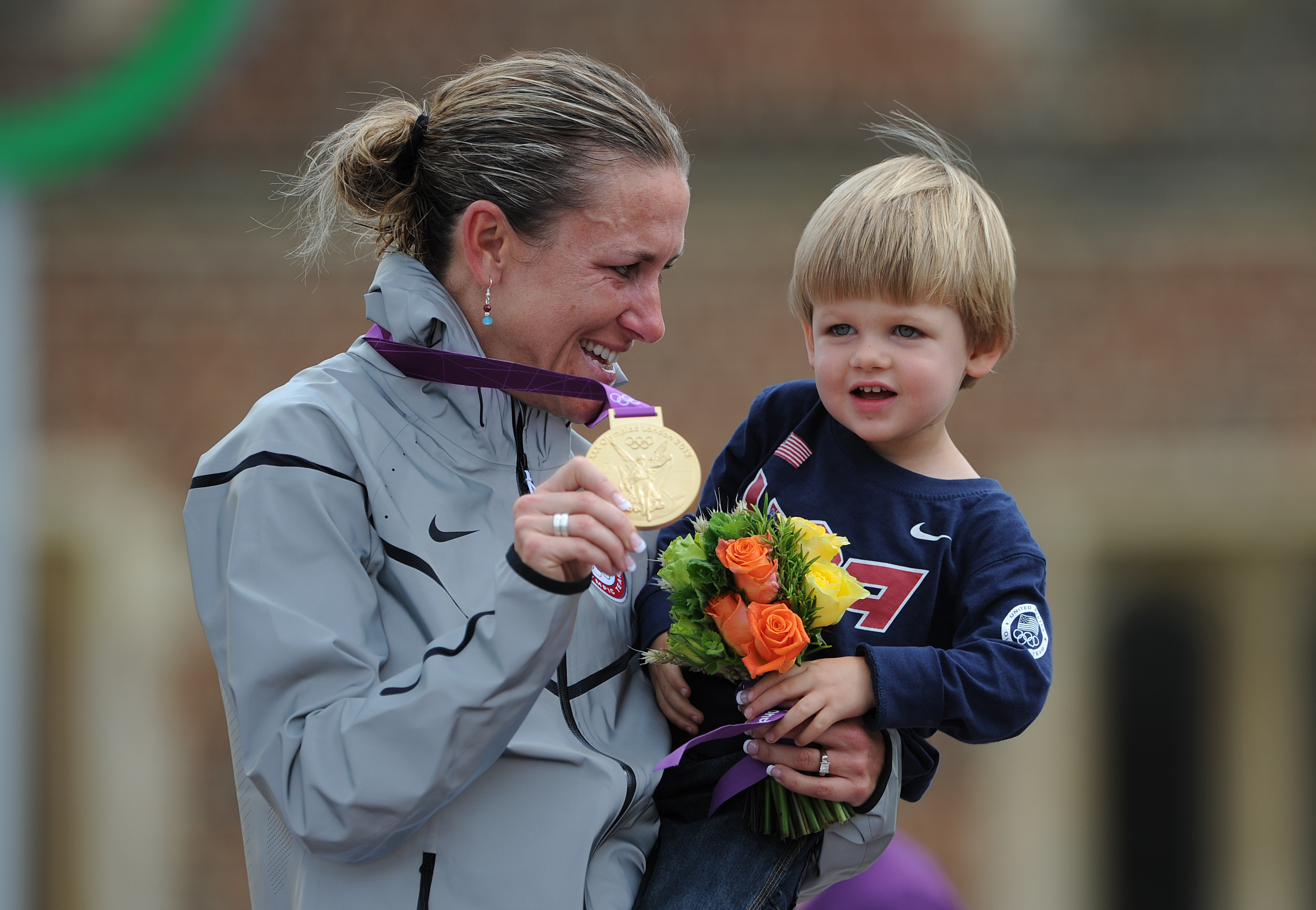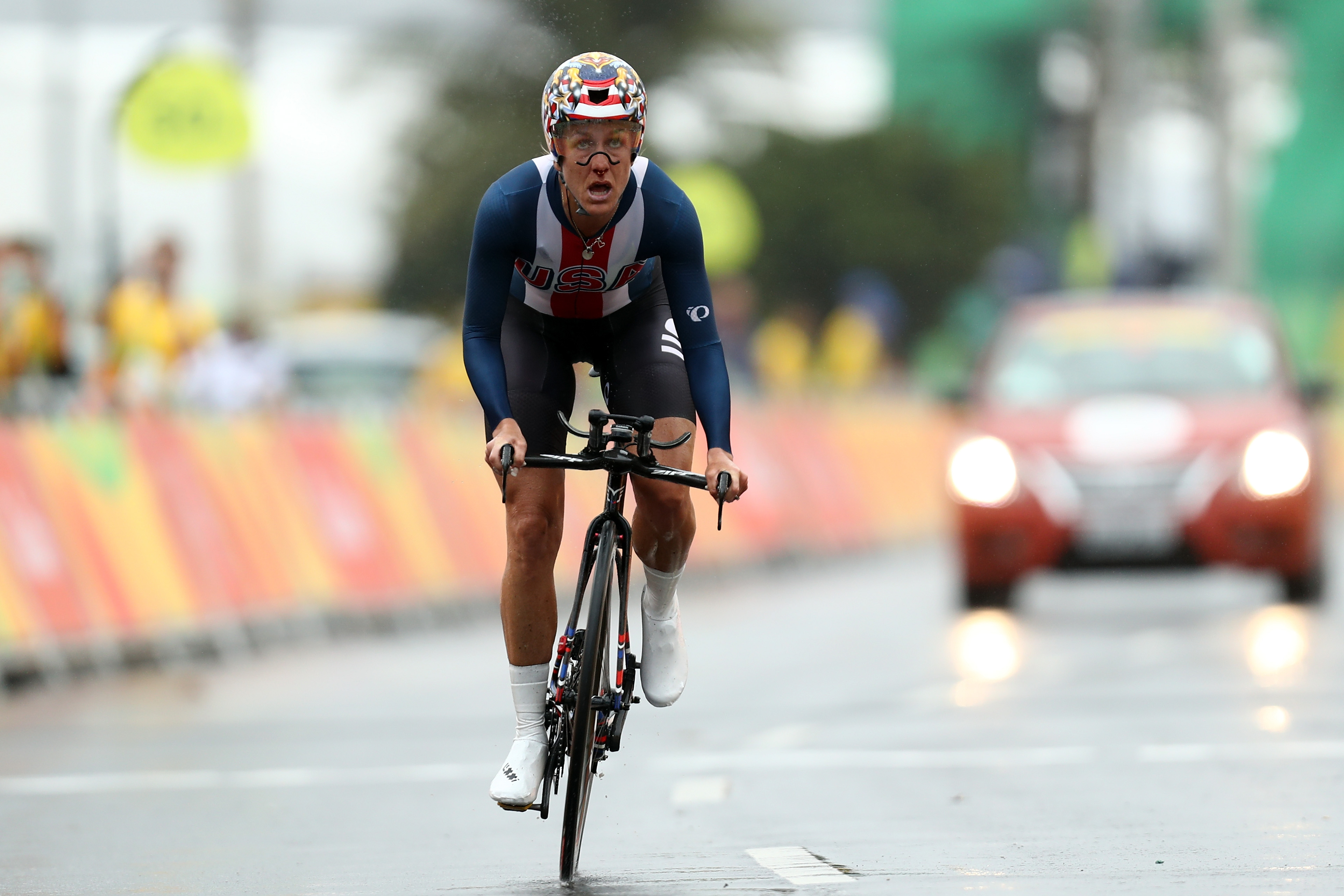
Kristin Armstrong is one of the greatest time trialists of all time. She became world champion in the event twice during her career, and won three successive Olympic gold medals, at Beijing 2008, London 2012 and Rio 2016. The American is now a coach and ambassador for the virtual cycling platform Zwift.
What was your first bike?
It was a Trek 1500 and my first time trial bike was called the ‘Radman’, which people still make fun of me for. It was a small company out of California.
What was the first race you remember watching?
It was actually the Hewlett Packard Women’s Challenge. It was the largest international race and it happened to be held in my hometown in Boise, Idaho. It lasted and went on for 20 years, and all the top riders from around the world would come here.
I didn’t even ride a bike, but I remember these amazing women who were so strong. I remember them having all types of body types. One of the things that stuck out to me during the prologue was, every time they announced the names, they talked about their cycling highlights, but they also talked about their other professions. They would be like, ‘Doctor so and so’, or, ‘ This woman is a dentist.’ They were not only amazing people on a bike, but they were amazing individuals off it.
Who was your cycling hero growing up?
Funny you ask. I knew people rode bikes, because they wore those weird shorts and spandex, but I didn’t realise what bike racing was all about until after college. I was in my 20s and, at that time, the who’s who was riding for Saturn and T-Mobile. Those were the big two teams. I used to look up to Anna Millward, from Australia, and Kimberly Bruckner, now it’s Baldwin. She was one of the top Americans, and then eventually she became my teammate on T-Mobile.
What was the proudest moment of your career?
Definitely London 2012, with my son on the podium with me. I retired in 2009 and had a baby in 2010. Then I came out of retirement, and my whole goal was, ‘If I could go to London and win, and also have Lucas on the podium with me then that would be amazing.’ Now I look at it and I laugh, even when I say it out loud. He was two years old.
London was not only about having my son on the podium, I’ve also never seen so many people watching a bike event in my entire life. It was so loud in the time trial, I couldn’t even hear my coach on the radio. The fans in London were just next level.
What’s the coolest place your career has taken you to?
Though I was able to travel the world, I think, looking back, it has to be 2004, when I qualified for Athens, which was the birthplace of the Olympic Games. There’s so much history there and to be part of that was incredible. If that were to be my first and last Olympic Games, I think I probably would have thought, ‘Gosh, how lucky’.

What is it about time trialing that appealed to you?
They say it’s the race of truth. In bike racing, there are so many uncontrollables, and I love road racing, I love the team aspect, but it’s not always the strongest rider who wins the bike race. In time trialing, it’s the strongest person who wins the bike race.
For me, my career was filled with teams, but then selfishly it was filled with time trials. I actually think I was a better teammate on the road because I had my selfish time trials. When I had my role in the team, sitting on the front, bridging the gap or being in a breakaway, I was like, ‘Wow, this is making me so much stronger than every one of my time trial competitors out there.’
If you hadn’t become a cyclist, what would you have done?
If I were to go back today, and the whole world was open, and I wasn’t going down the route of cycling, I definitely would take it up a notch and become a physician. Back in the day, when I was like 20 years old, I was like, ‘Being a doctor, well, that takes too much.’
And finally, where do you keep your Olympic medals?
I have a glass case that I can just pick up, because when I go to talks, I share them.
There’s a fourth medal in there, which is pretty interesting. One of the things that the US Olympic Committee does is, when an athlete wins a medal, the athlete gets to present a coaching medal to the number one influencer that helped them. I have a medal in there from when I helped one of my athletes [Chloé Dygert] win a bronze medal in the team pursuit.
When you think about trying to win a medal for yourself, it’s extremely difficult. But when you’re trying to now help other people win medals, it’s almost harder. And so that medal really means a lot to me.







